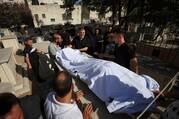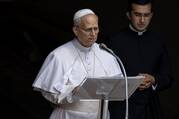Loading...
Click here if you don’t see subscription options
Click here if you don’t see subscription options

Politics & SocietyNews
"I again call for an immediate end to the barbarity of the war and for a peaceful resolution of the conflict," Pope Leo said.

FaithScripture Reflections
A Reflection for Saturday of the Fifteenth Week in Ordinary Time, by Zac Davis

FaithFaith in Focus
Trauma-informed spirituality knows better than to promise that prayer will take away all the pain. But it can offer the hope that, even in the midst of pain, there can be moments of feeling whole.

Politics & SocietyNews
Israeli Prime Minister Benjamin Netanyahu telephoned Pope Leo XIV, who urged Israel’s leader to revive negotiations and enact a ceasefire.

FaithNews
Msgr. Carlo Alberto Capella, a former Vatican diplomat who was convicted of distributing and possessing child pornography, was reinstated at the Vatican, a Spanish report says.

Politics & SocietyNews
After an early morning attack on the Holy Family Church in Gaza, Pope Leo XIV called for an immediate ceasefire, dialogue and peace in the region.

FaithShort Take
Something essential is lost when generations remain siloed at church.

FaithFaith in Focus
You’ve got a 401K. But do you have a spiritual retirement plan?

Politics & SocietyNews
In a July 17 telegram, Pope Leo XIV said he was “deeply saddened to learn of the loss of life and injury caused by the military attack on the Holy Family Catholic Church in Gaza.”

Politics & SocietyShort Take
Despair is easy for anyone who takes seriously the call to love your neighbor as yourself. But hope can come in two ways.
